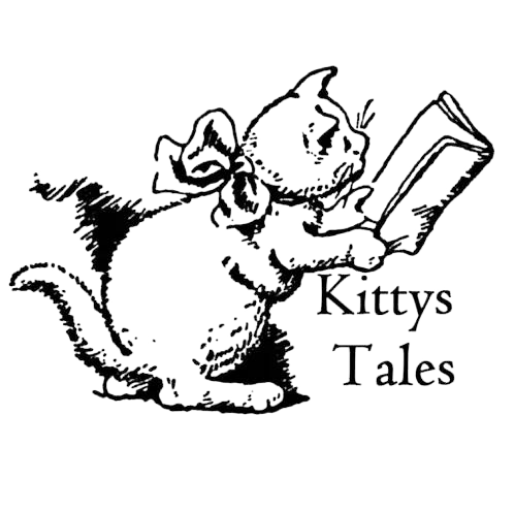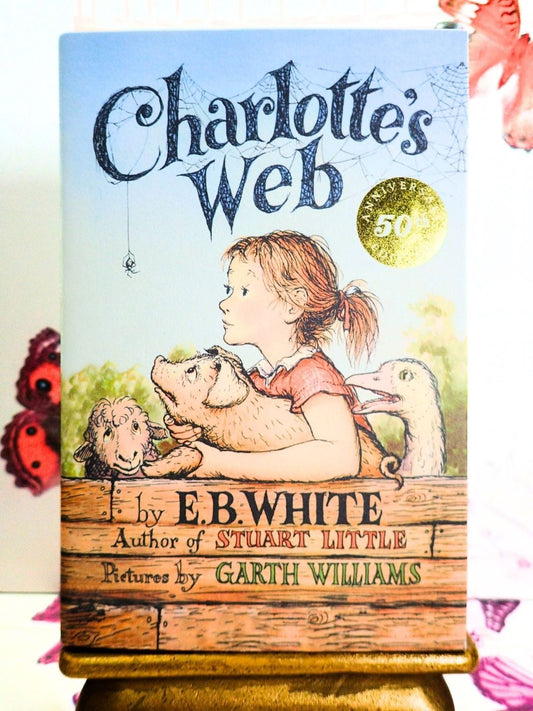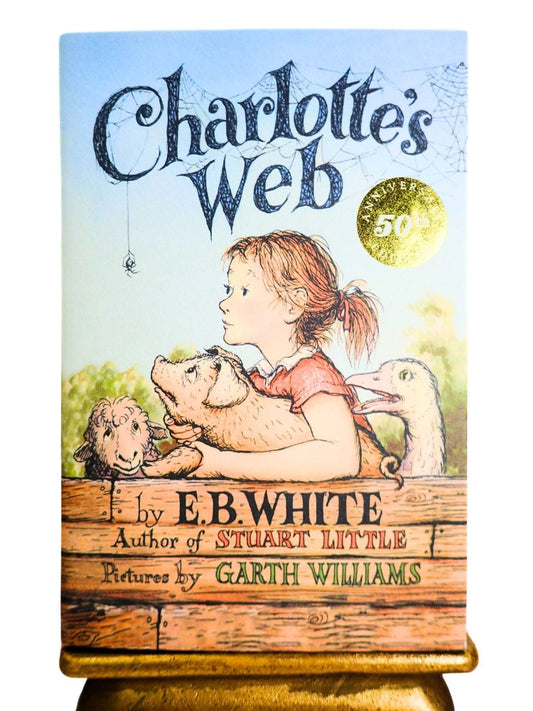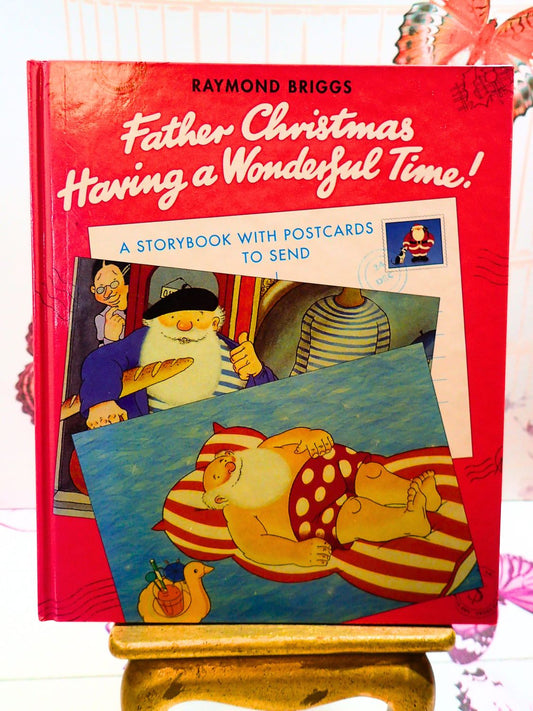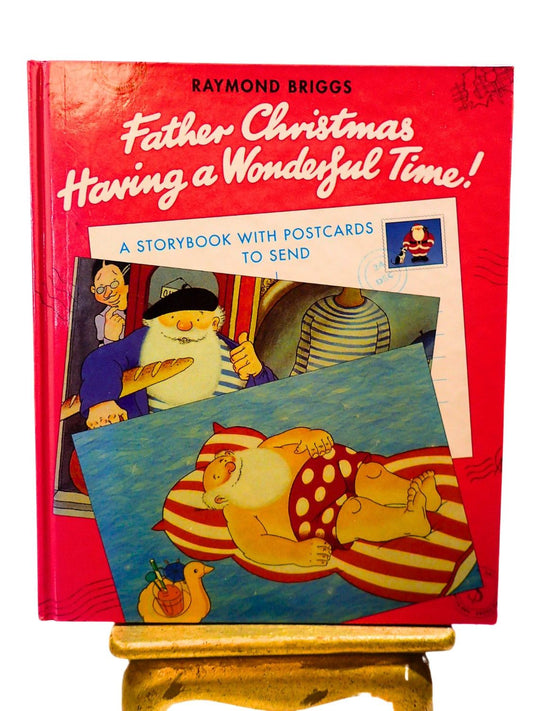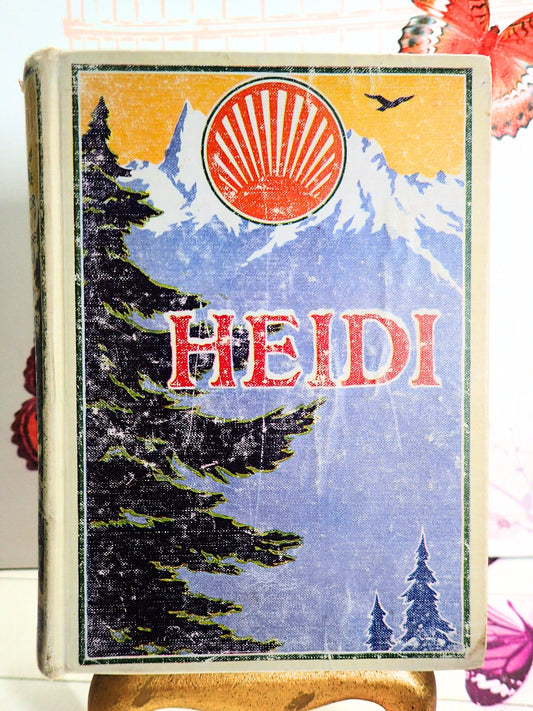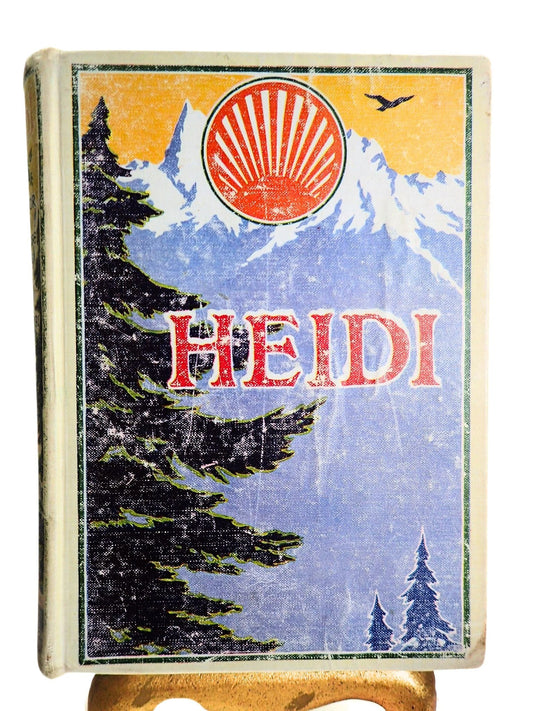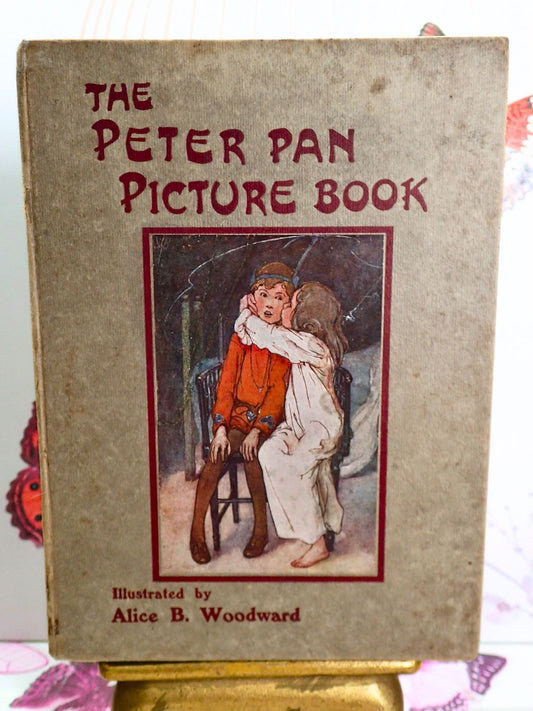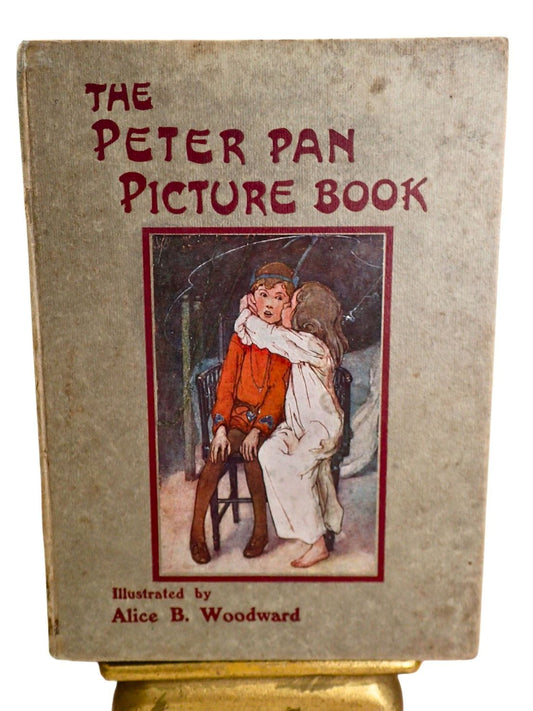Mabel Lucie Attwell Books
-
Discover the whimsical delights of vintage children's books by Mabel Lucie Attwell at Kitty's Tales.
Our collection includes a scarce first edition of 'Lucie Attwell's Fairy Book', charming Lucie Attwell annuals, and lots of fun editions from the 1960s and 1970's.
Be enchanted by the adorable illustrations of mischievous fairies, elves and cherubic children.
The lovely old children's story books by Lucie Attwell are as charming today as nearly a century ago, perfect bedtime reading for children or worthy examples of 20th century children's illustration for your own collectable bookshelf. -

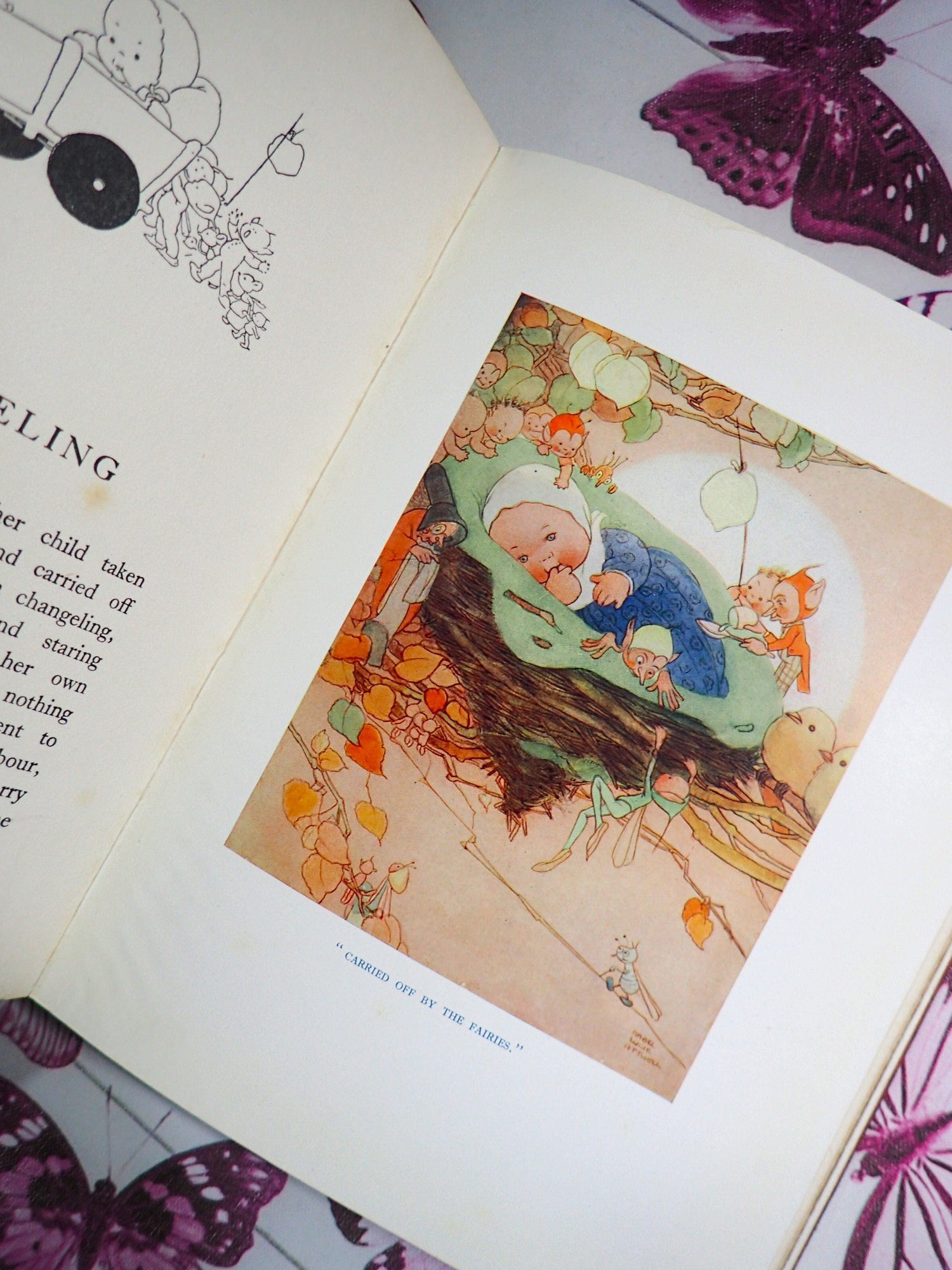
Kitty's Classic Reads: The best of Mabel Lucie Attwell
This wonderful vintage children's book "The Lucie Attwell Fairy Book" is recognised as one of her most endearing children's books.
This rare edition by the famous illustrator is packed full of glorious full colour plates and the enchanting and whimsical line drawn illustrations of darling children that made Mabel Lucie Attwell so popular throughout the 20th Century.
It is becoming increasingly scarce in any condition and is especially hard to find with all the original beautiful illustrations intact, as we have in this charming children's book so soon to be officially antique. This lovely old fairytale book is one to be treasured.
A super example of this highly collectible children's book by an important female artist of the 20th Century.
Kittys Tales
Lucie Attwells Fairy Book First Edition 1932 Beautifully Illustrated Fairytales Collectable
Share
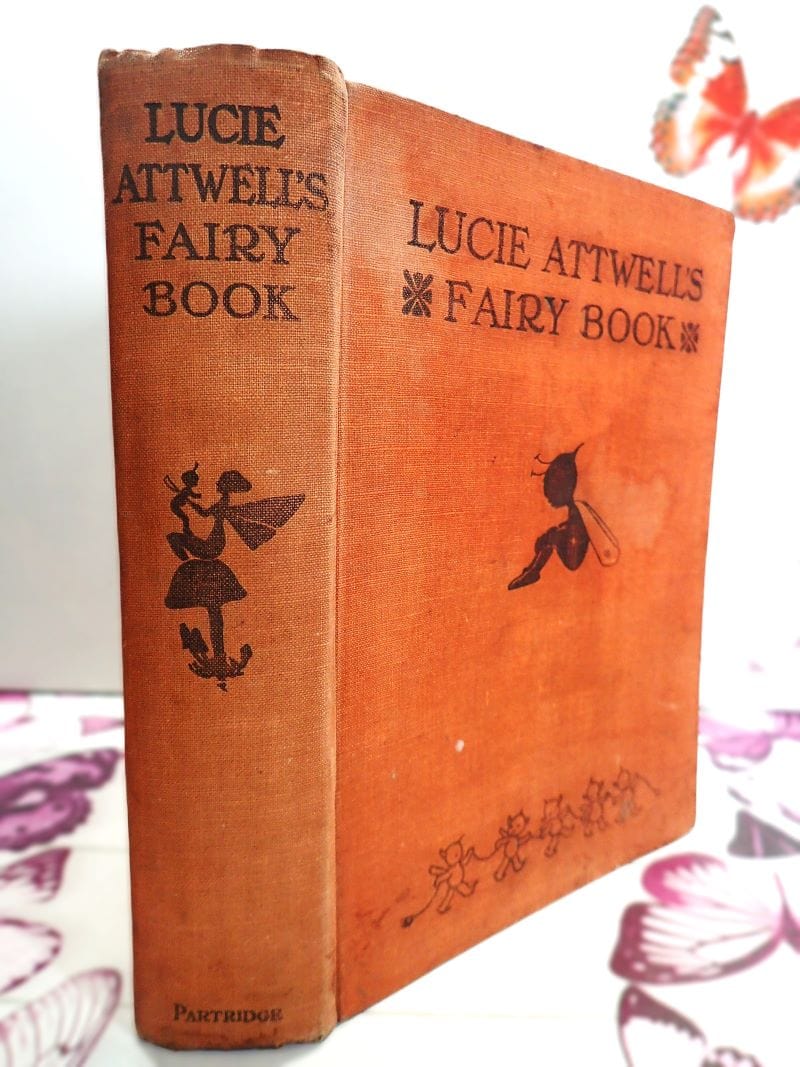
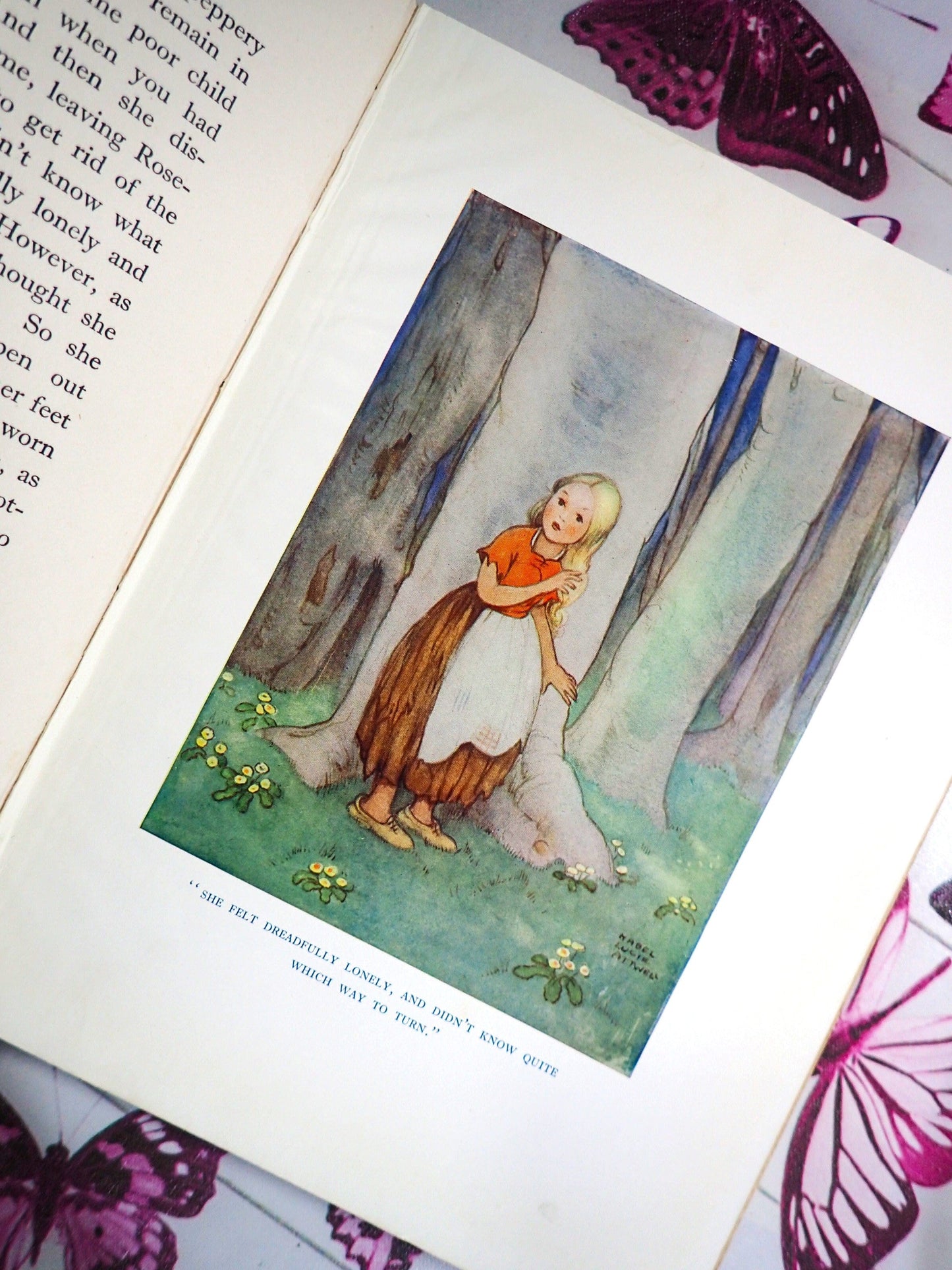
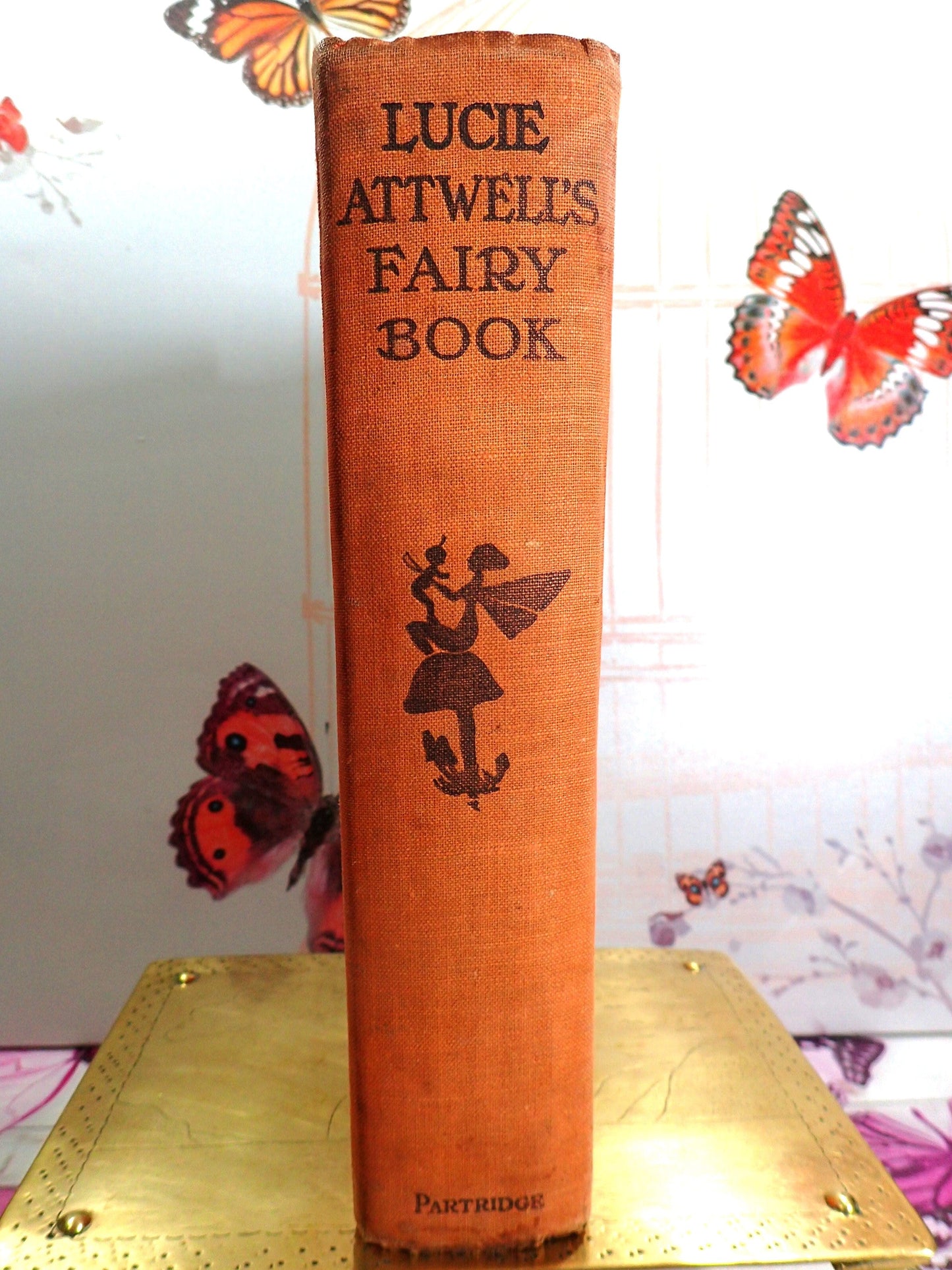
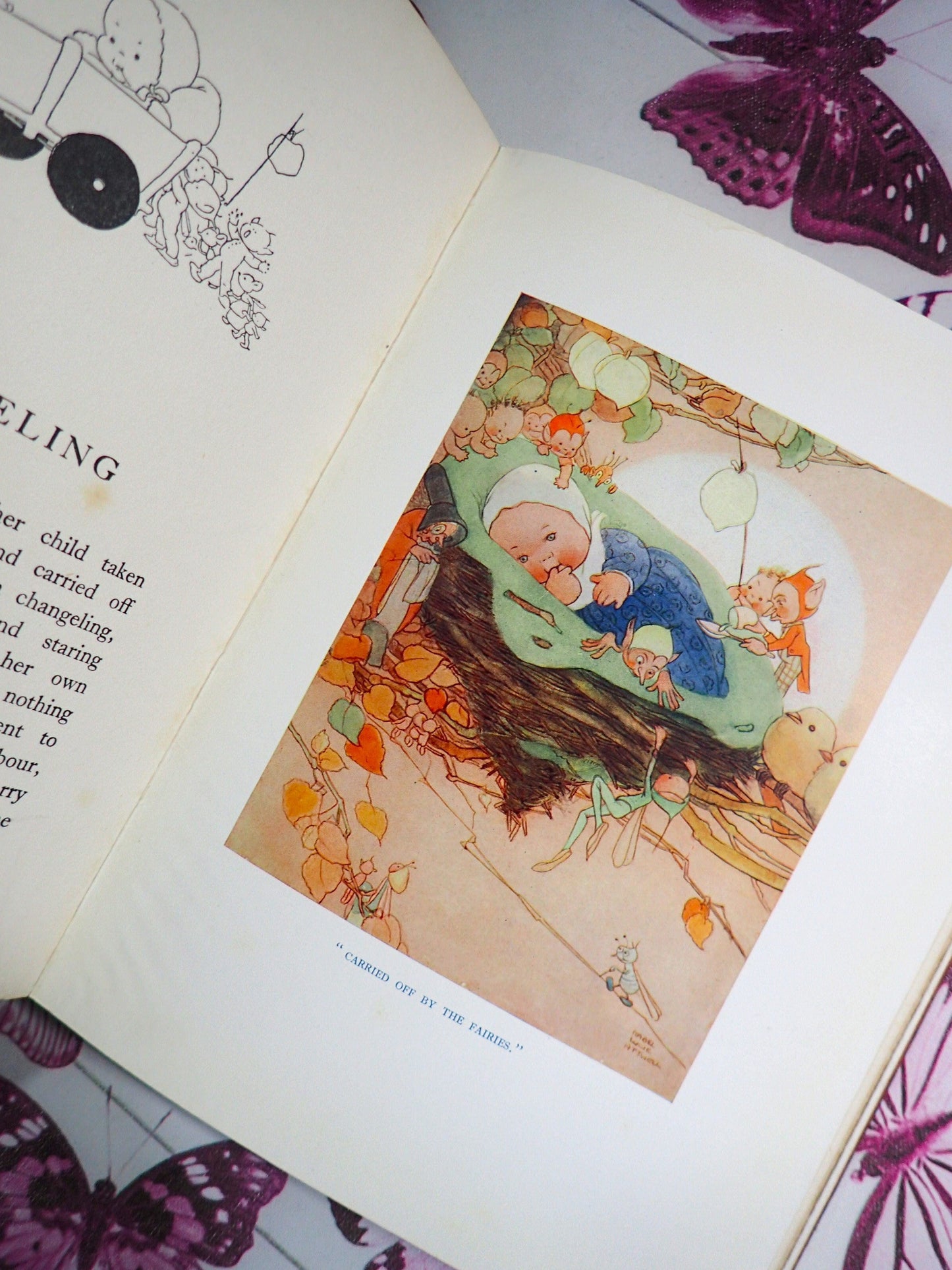
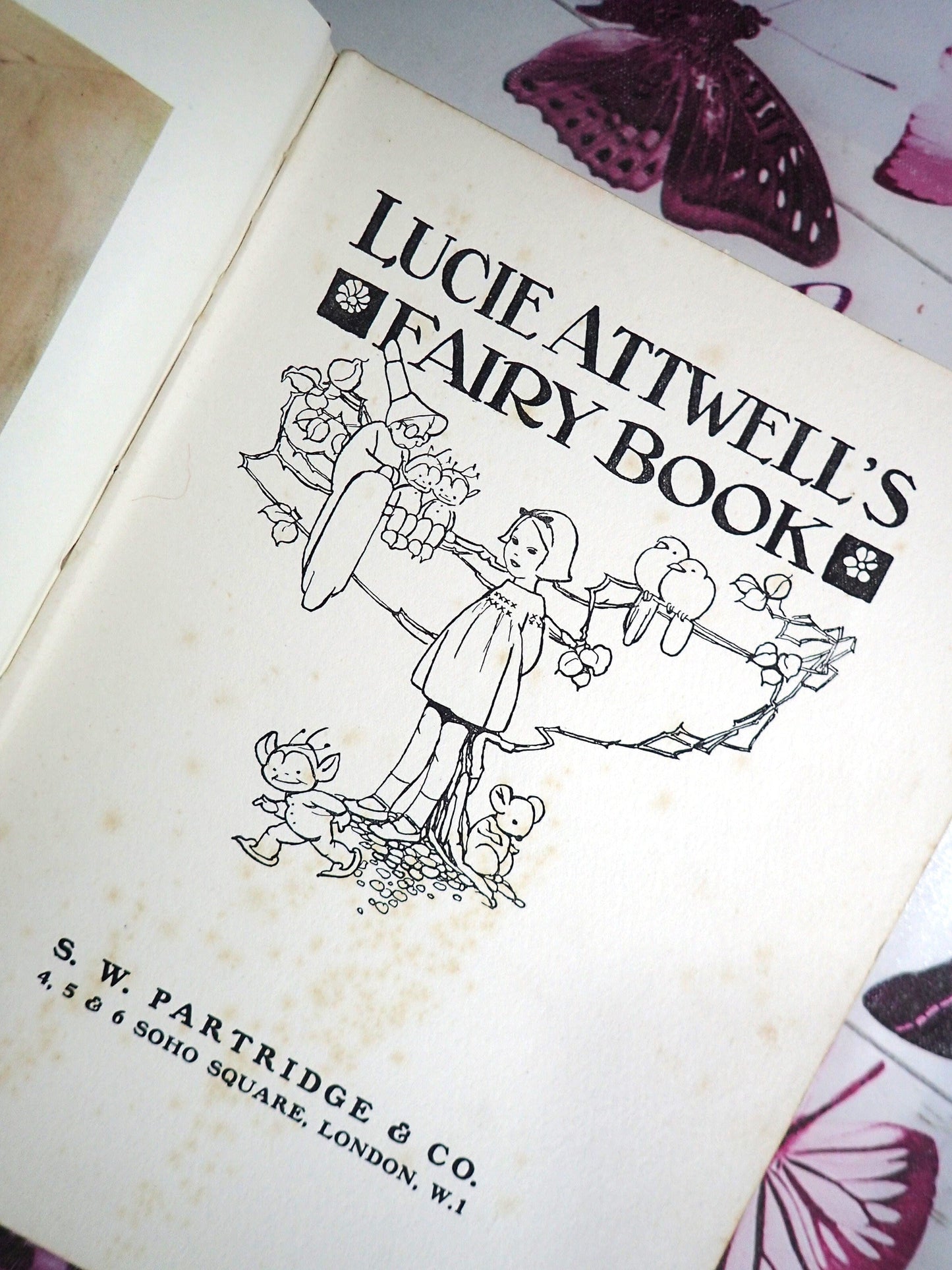
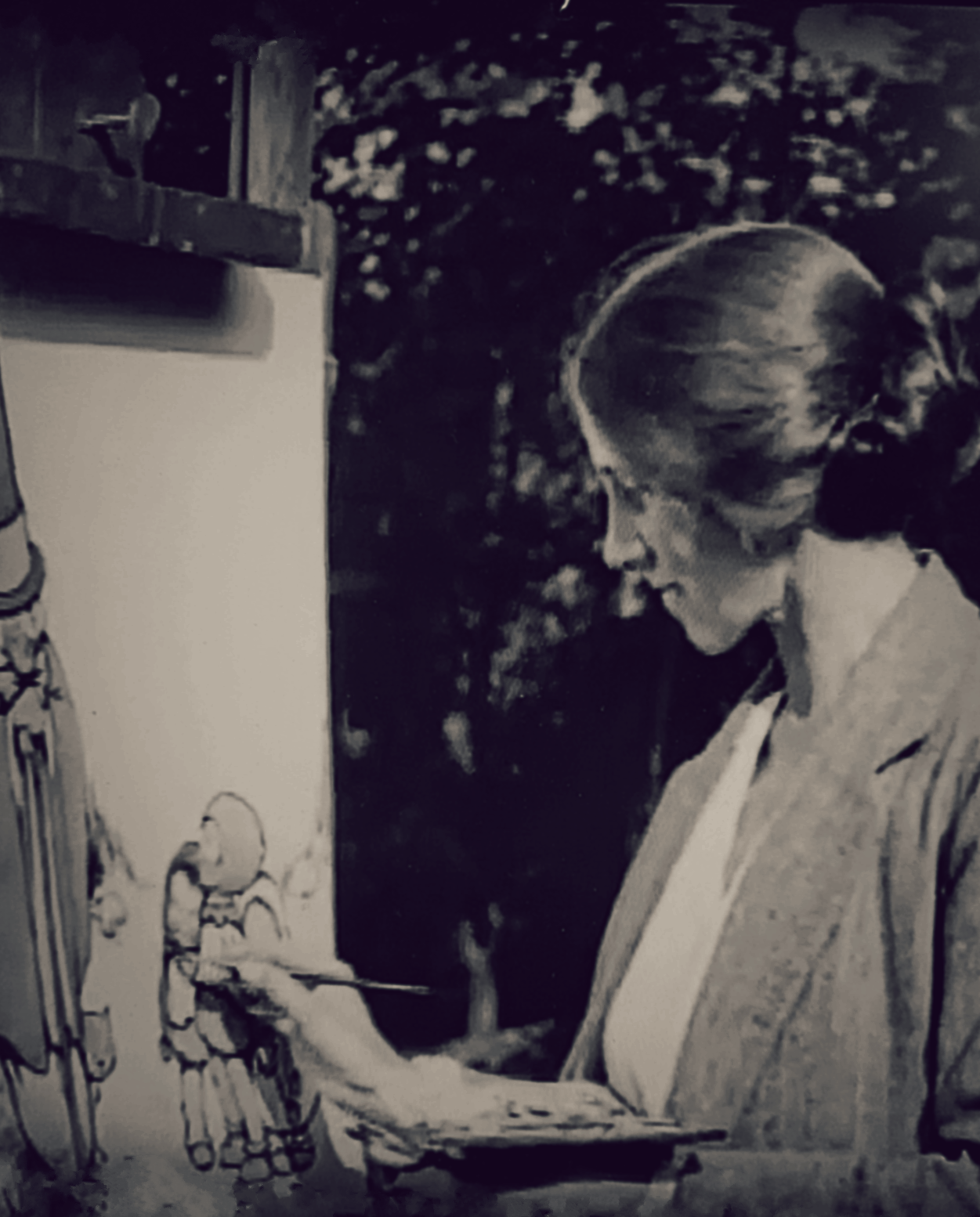
" I see the adult in the child, then draw the child as an adult "
" During the Second World War, I worked in an empty building by the Thames. It had been used by the Thames Conservancy Board. When war came, they moved out and I was moved in. I stayed there for most of the war. I never went down to an air raid shelter. I was too busy trying to make people laugh about wartime bread and sausages, instead of crying about them."Mabel Lucie Attwell
Mabel Lucie Attwell the famous artist and illustrator was born in London in 1879. In her early years she lived in a suburb called Mile End. Her parents were Augustus Attwell and her mother Emily Ann Attwell. She had a good upbringing and attended private schools.
Much like Beatrix Potter she had to break free from the constraints of the age and a strict family life. From an early age Mabel had shown a tenacious artistic talent as well as a vibrant imagination. She found copying in the studio tedious and much preferred to illustrate her own fantasies and was especially fond of drawing young fairy like and angelic children. She managed to sell some of her early drawings which enabled her to independently continue her artistic education she studied at Heatherley's and St. Martin's School of Art. It was at St Martins that she first met a man destined to become her husband.
By 1905 she had found moderate success illustrating children's books by popular children's authors of the era including Mrs Molesworth, May Baldwin and Mabel Quiller Couch...
Collapsible content
Read More
In her early commissions she usually provided several colour plates for the books she illustrated as well as black and white line drawings.
At this time she was working for publishers such as W & R Chambers and the Raphael House Library of Gift Books.Mabel's earliest output was heavily influenced by popular illustrators of the era, an era that is now recognised as the Golden Era of Illustration. These artists, many of which were in her own circle of friends included such famous illustrators as Jessie Willcox Smith, Heath Robinson, Hilda Cowham and John Hassall.
As time progressed her confidence grew and her style subtly changed. In 1908 her personal life saw her marry the kindred spirit she had met at St. Martins, the artist Harold Earnshaw. With Harold she soon had her first daughter Marjorie aka 'Peggy'. It was this beloved daughter Peggy who became the child model instrumental in creating the iconic illustrative style that we now recognise as that of Mabel Lucie Attwell. Cherubic-faced, cute and chubby children with cheeky but angelic smiles and a certain wry humour in their sweet faces.
Mabel felt it was important that her art gave solace to people especially children, and especially through the difficult war years. Her illustrations and their accompanying cheery messages were full of hope and smiles despite the occasional tears. The public identified with them, and it is now broadly recognised that Mabel Lucie Attwell's cheery little postcards with their sweet homilies played a role in keeping up morale, especially during World War II as many postcards were sent to lonely soldiers on the front missing their sweethearts.
Mabel Lucie Attwell's art went on to make a profound impression upon the illustrative landscape during the early and mid 20th century. Her work was found not only in famous books of the day but her cute and cheeky cherub-faced children were found on everything from babies crockery, to money boxes to postcards.
Some of the most notable books she illustrated were important commissions such as Grimm's Fairy Tales 1910 for the publisher Cassell. She also did major work with Raphael Tuck including Alice in Wonderland 1910, Hans Andersen's Fairy Tales 1914 and the children's classic by Charles Kingsley - The Water Babies 1915. Many of these early books illustrated by Mabel Lucie Attwell are now highly collectable and sought after in the field of collecting vintage children's books, especially such beautifully illustrated ones.
Her work was also bought by Magazine's and Periodicals of the day such as Tatler and Bystander. The world it seemed could not get enough of her adorable cheeky faced children. She even did early advertisement work even up until the 1970's era you could find advertisements featuring children drawn by Mabel in magazines such as Woman's Weekly.The publisher Hodder and Stoughton commissioned Mabel to illustrate two important gift books. One of these 'Peeping Pansy' 1918 was by the Queen of Roumania resulting in Mabel being invited to stay at the Royal Palace in Bucharest to meet Queen Marie.
Another one of her most popular books was illustrated around this time 'Peter Pan and Wendy' 1921. Shortly after this she began her own gift book Annual aimed at the Christmas market. Launched in 1922 The Lucie Attwell Annual went on to be published for around half a century. Unlike many illustrators before her, the popularity of her work meant she was able to break into markets other than book illustration. The only other artist (and author) to have quite so successfully marketed her work in this way was Beatrix Potter.
Mabel Lucie Attwell's art even resulted in toys such as dolls and one of her most important partnerships was that of her commercial relationship with Shelley Porcelain, the potteries created a whole range of wares. This commercial relationship saw the 'Boo Boos' becoming a popular range of pottery ideal for nursery ware they soon caught on with the public. This relationship with Shelley Pottery continued into the 1960's.A proliferation of pottery, toys, moneyboxes, and countless postcards continued to be produced well into the 20th century.
Her daughter Peggy (Marjorie) Wickham née Earnshaw, followed in her mother's footsteps and became an artist and continued marketing many of Mabel's illustrations. Even today the family business has revived her works to some success.
When Queen Elizabeth II was a child, even herself and her sister Princess Margaret had Mabel Lucie Attwell china in their nursery, as did the Queen's own son, now King Charles III. Whether this tradition has continued you would have to ask the Royal family!After a highly successful career spending her life working on the art she loved so much she spent her final years in Fowey, Cornwall.
Mabel Lucie Attwell died at the age of 85 on the 5th November 1964 but her delightful pixies, elves, fairies and cherubic children live on in the all time classic children's books she illustrated, delighting generation after generation of children. And anyone lucky enough to have early examples of Lucie Attwell's children's, books will be sure to treasure them and perhaps pass them on to their next generation to enjoy Mabel Lucie Attwell's whimsical and timelessly appealing art.
References & Further Reading:
Dalby, R. (1991). The golden age of children's book illustration. Gallery Books. pp. 132–133. ISBN 0-8317-3910-X.
Henty, J. (1999). The collectible world of Mabel Lucie Attwell. ISBN 0903685701.
Wikipedia contributors. (2024, June 17). Mabel Lucie Attwell. In Wikipedia, The Free Encyclopedia. Retrieved June 17, 2024, from https://en.wikipedia.org/wiki/Mabel_Lucie_Attwell
Books by this Author
Timeline of popular books illustrated by Mabel Lucie Attwell:
Alice in Wonderland 1910
Grimm's Fairy Tales 1910
Hans Andersen Fairy-Tales 1914
Peeping Pansy 1919
The Wild Swans circa 1920
Peter Pan and Wendy 1921
The Boo-Boos Series 1921– 1922
Lucie Attwell's Annual 1922–1926
Baby's Book 1922
The Lost Princess 1924
All About School 1925
Lucie Attwell's Rock-Away Tales 1931
Lucie Attwell's Children's Book 1927–1932
Lucie Attwell's Fairy Book 1932
Lucie Attwell's Annual 1926 –1974
Lucie Attwell's Painting Books 1934
Lucie Attwell's Great Big Midget Books 1934–1935
Story Books 1943–45
Jolly Book 1953
Nursery Rhymes Pop-up Book 1958
Book of Verse 1960
Lucie Attwell's ABC Pop-Up Book 1960
Book of Rhymes 1962
Tinies Book of Prayers 1982
There were many other books illustrated by Mabel during her long career as well as Postcards and all the other merchandise not listed here.
Shop more of our Best Loved Vintage Books:
-
Charlotte's Web E.B.White Classic Vintage Children's Book 50th Anniversary Edition Puffin Hardback
Vendor:Kittys TalesRegular price $18.00 USDRegular priceUnit price / per -
Father Christmas Having a Wonderful Time Raymond Briggs First Edition Vintage Children's Book
Vendor:Kittys TalesRegular price $66.00 USDRegular priceUnit price / per -
Heidi Johanna Spyri A tale for Children Dutton New York 1930 Beautiful Vintage Book
Vendor:Kittys TalesRegular price $66.00 USDRegular priceUnit price / per -
The Peter Pan Picture Book by J. M. Barrie Classic Antique Children's Story Beautifully Illustrated
Vendor:Kittys TalesRegular price $122.00 USDRegular priceUnit price / per
Explore our Splendid Vintage Book Collections
-
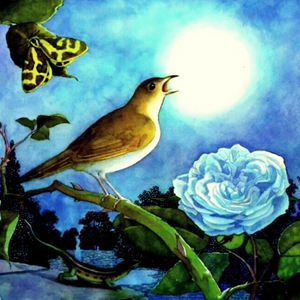
Vintage Bedtime Story Books
Why do we recommend "Kittys Tales" Collection of "Vintage Bedtime Story Books"? Many...
-
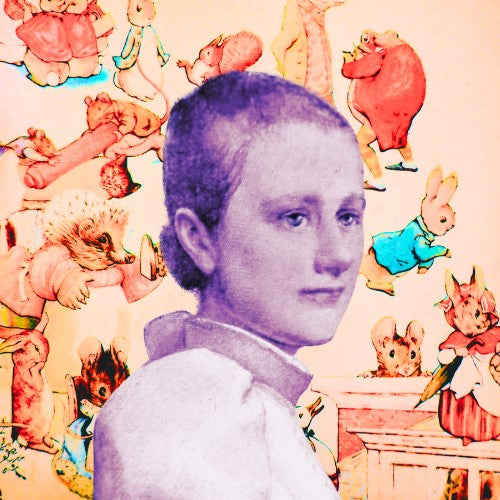
Beatrix Potter
Our adorable vintage Beatrix Potter books include all her classic tales such...
-
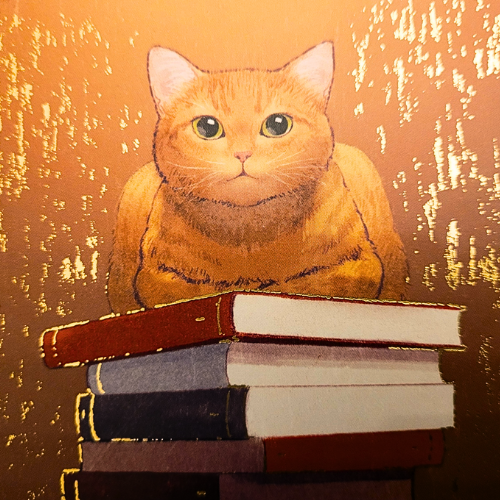
Our Latest Vintage Book Finds
What books are in Kittys Tales Latest Finds Collection? In this Kittys...
